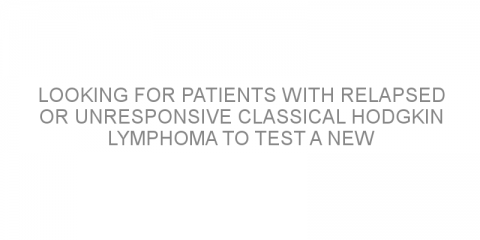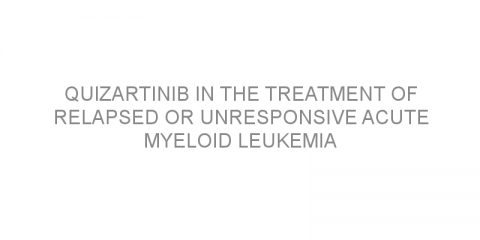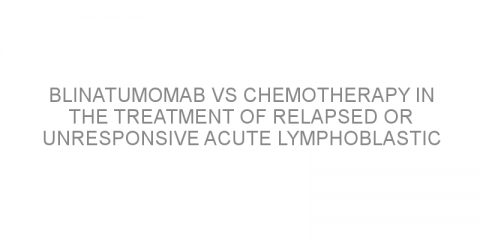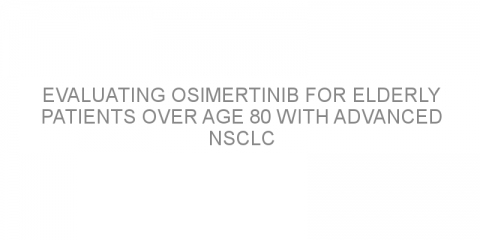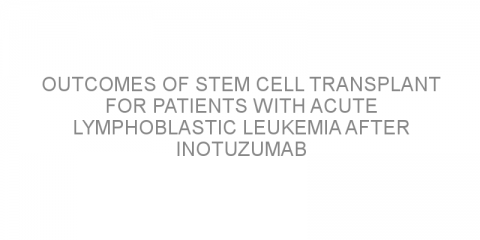In a nutshell This phase 1b/2 trial will investigate the safety of RMC-4630 and cobimetinib (Cotellic) in relapsed or unresponsive solid tumors. The main outcomes will be the number of side effects and the overall response rate. This trial is recruiting in a number of US states. The details Relapsed/refractory...
Read MoreCurrent treatment status-Undergoing active treatment-Progressive despite several lines of treatment Posts on Medivizor
Searching patients with relapsed or unresponsive cancer to test a new medication
In a nutshell This phase 1b/2 trial will investigate the safety of RMC-4630 and cobimetinib (Cotellic) in relapsed or unresponsive solid tumors. The main outcomes will be the number of side effects and the overall response rate. This trial is recruiting in a number of US states. The details Relapsed/refractory (R/R) cancer is a term for...
Read MoreLooking for patients with relapsed or unresponsive classical Hodgkin lymphoma to test a new treatment combination
In a nutshell This study is evaluating how well a new chemoimmunotherapy regimen works in treating patients with classical Hodgkin’s lymphoma (cHL) that has come back or stopped responding to treatment. The main outcome to be measured will be the number of patients who have a complete disappearance of all signs of cancer after treatment. This study...
Read MoreQuizartinib in the treatment of relapsed or unresponsive acute myeloid leukemia
In a nutshell This study compared the safety and effectiveness of quizartinib compared to chemotherapy in the treatment of relapsed or unresponsive acute myeloid leukemia (AML). Researchers found that quizartinib was safer and more effective than chemotherapy in these patients. Some background Acute myeloid leukemia (AML) is a cancer of the bone...
Read MoreTreatment options for patients with recurrent or non-responsive Hodgkin lymphoma
In a nutshell This article reviewed current treatment options for patients with Hodgkin lymphoma (HL) that has come back (relapsed) or stopped responding to treatment (refractory). Some background Chemotherapy remains the standard first-line treatment for HL. One of the most commonly used regimens is ABVD (doxorubicin, bleomycin, vinblastine,...
Read MoreSearching for patients with unresponsive cancer to test a new treatment
In a nutshell This phase 1/2 trial will investigate the safety of 9-ING-41, for treatment-resistant cancers. The main outcome will be the number of treatment-related adverse events (TRAEs). This trial is recruiting in the United States. The details Some cancers may not respond to conventional treatment. Treatment-resistant cancers are called...
Read MoreSearching for patients with unresponsive cancer to test a new treatment
In a nutshell This phase 1/2 trial will investigate the safety of 9-ING-41, for treatment-resistant cancers. The main outcome will be the number of treatment-related adverse events (TRAEs). This trial is recruiting in the United States. The details Some cancers may not respond to conventional treatment. Treatment-resistant cancers are called...
Read MoreSearching for patients with unresponsive cancer to test a new treatment
In a nutshell This phase 1/2 trial will investigate the safety of 9-ING-41, for treatment-resistant cancers. The main outcome will be the number of treatment-related adverse events (TRAEs). This trial is recruiting in the United States. The details Some cancers may not respond to conventional treatment. Treatment-resistant cancers are called...
Read MoreSearching for patients with relapsed or unresponsive non-Hodgkin lymphoma to try a new cell therapy
In a nutshell This Phase 2 study is evaluating the safety and effectiveness of a new T-cell therapy for B-cell non-Hodgkin’s lymphoma (NHL) that has come back or stopped responding to treatment. The main outcomes to be measured will be the number of patients who experience side effects and overall response after treatment. This trial is recruiting...
Read MoreBlinatumomab vs chemotherapy in the treatment of relapsed or unresponsive acute lymphoblastic leukemia
In a nutshell This study compared the safety and effectiveness of blinatumomab (Blincyto) with chemotherapy in the treatment of acute lymphoblastic leukemia (ALL). Researchers found the survival was higher with blinatumomab than chemotherapy alone. Some background Patients with unresponsive or relapsed ALL treated with chemotherapy have...
Read MoreEvaluating osimertinib for elderly patients over age 80 with advanced NSCLC
In a nutshell This study evaluated the effectiveness of osimertinib (Tagrisso) in patients over age 80 with advanced small cell lung cancer (NSCLC). This study found that these elderly patients had similar outcomes to patients in clinical trials. Some background NSCLC is the most common type of lung cancer. One common treatment is...
Read MoreOutcomes of stem cell transplant for patients with acute lymphoblastic leukemia after inotuzumab ozogamicin treatment
In a nutshell This study aimed to investigate the outcomes of allogeneic stem cell transplant (allo-SCT) after treatment with inotuzumab ozogamicin (Besponsa) for patients with relapsed/unresponsive acute lymphoblastic leukemia (ALL). This study concluded that allo-SCT provided optimal long-term survival benefit for these patients. Some...
Read More
